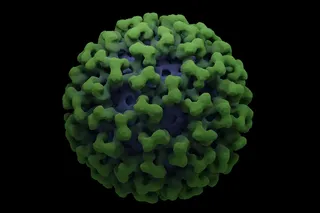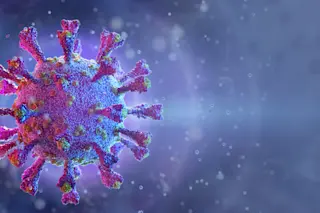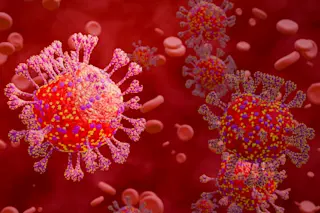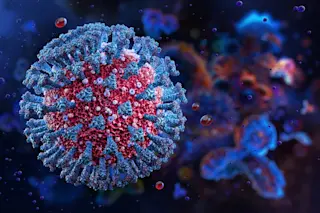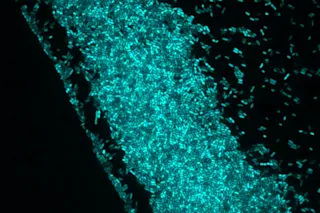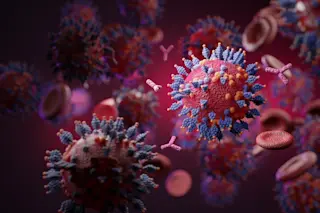A government-sponsored study last year found that HIV rates were threefold higher among gay men who used methamphetamine than in their drug-free counterparts. Researchers have blamed the drug's behavioral effects, which include party-prolonging sleeplessness and an aphrodisiac effect that reduces inhibitions.
State University of New York at Buffalo immunologist Madhavan Nair sees a biological connection: Methamphetamine use increases the risk of infection at a deeper, cellular level. For some unknown reason, Nair says, the drug influences expression of a receptor called DC-SIGN. The receptor is found on the surface of dendritic cells, a cell type that scavenges invading pathogens and presents them to infection-fighting T cells to activate an immune response. Nair found that immune cells exposed to meth make more of these receptors. Unfortunately, in the case of HIV exposure, the additional receptors increase the risk of the virus infecting the T cells. "The docking protein [the receptor] keeps ...



